Are you curious about CBD but hesitant to try it because of the stigma surrounding cannabis? Well, we’re here to set the record straight once and for all – CBD does NOT get you high. That’s right, contrary to popular belief, CBD is not a psychoactive substance like THC. So put your worries aside and join us as we debunk the myth that has been holding back so many from experiencing this incredible plant-based medicine.
What is CBD?
Cannabis has been used for centuries as a key ingredient in many remedies and medicines. However, the DEA has classified CBD as a Schedule I controlled substance, meaning that it has high potential for abuse and no medicinal benefits. Despite this classification, there is ample evidence to suggest that CBD does not get you high. In fact, CBD is often recommended for those who are looking for relief from conditions such as anxiety, chronic pain, and seizures.
What are the Different Types of CBD?
Cannabis, or marijuana, is a plant that has been used for centuries for its psychoactive properties. The main active ingredient in cannabis is delta-9-tetrahydrocannabinol (THC), which is what makes it a psychoactive drug. CBD, or cannabidiol, is another component of cannabis and does not have the psychoactive effects of THC.
There are three main types of CBD: hemp, full-spectrum, and isolate. Hemp is made from the Cannabis sativa plant and contains only trace amounts of THC. Full-spectrum CBD products contain both CBD and THC. Isolate products contain only CBD and are not psychoactive.
What are the Benefits of CBD?
There are many purported benefits of CBD, but is it really a panacea for all ills? In short, yes and no. While there are some significant benefits to taking CBD, it is not a cure-all. Further, while CBD may not get you high, it does have some marijuana-like effects. Here are the key benefits and drawbacks of CBD:
Benefits of CBD
1) Stimulates the immune system: One of the primary benefits of CBD is that it has anti-inflammatory properties. This means that it can help stimulate the immune system and help fight off infection.
2) Reduces anxiety and depression: According to various studies, CBD has been found to be effective in reducing anxiety and depression. It works by interacting with certain receptors in the brain, which can alleviate symptoms such as stress and paranoia.
3) Helps with sleep quality: Many people struggle to get a good night’s sleep due to anxiety or other stressors. CBD has been found to improve sleep quality by helping calm down the brain and improving overall coordinations between parts of the body.
4) Protects cells from damage: One of the most important functions of CBD is its ability to protect cells from damage. This includes protecting neurons from damage caused by inflammation and protecting cells from oxidative stress.
5) Helps with chronic pain: due to its analgesic (painkilling) properties, consuming CBD oil on a regular basis can be
What are the Side Effects of CBD?
CBD, or cannabidiol, is a chemical compound found in cannabis and hemp. It has been shown to have therapeutic effects on a variety of diseases, including anxiety, epilepsy, and chronic pain. There are many myths surrounding CBD and its effects. Here are the five most common ones:
1) CBD Gets You High
This myth is probably the most widespread misconception about CBD. Contrary to popular belief, CBD does not get you high. In fact, it is non-psychoactive and has minimal effects on the psychoactivity of THC. There have been some cases where people have experienced minor side effects due to THC consumption along with CBD, such as dizziness or paranoia; however these cases are very rare and generally only occur when someone takes large doses of both substances simultaneously.
2) CBD Is Only Good for Treating Pain
While CBD may be good for treating a wide range of medical conditions, it is not only effective for pain relief. In fact, studies have shown that it can also be helpful for treating other conditions like anxiety and depression. If you’re looking for a single remedy to address all your medical needs, CBD may not be the best option for you. Instead, consider discussing your options with a qualified healthcare professional.
3) CBD Is Harmless Enough That You Can Take It Anywhere
Although technically safe enough to take anywhere, there are some precautions that should still be taken when using CBD oil products. For example
How Does CBD Affect the Brain?
Cannabidiol, or CBD for short, is one of the many cannabinoids found in cannabis. Unlike THC, which is responsible for the psychoactive effects of cannabis, CBD does not produce a “high”. There are a number of reasons why this is the case.
To begin with, CBD doesn’t interact with the same receptors in the brain as THC does. This means that it doesn’t produce any psychoactive effects. Additionally, CBD has anti-inflammatory and pain-relieving properties, which makes it an appealing treatment option for a variety of conditions.
In short, while there is some evidence to suggest that CBD may get you “high”, this is not an accurate portrayal of how CBD actually works. As a result, it is often dismissed as a non-effective treatment option for various conditions. However, this shouldn’t be the case – given all of its potential benefits.
How Does CBD Affect Smokers?
CBD oil is becoming increasingly popular as a natural way to treat a variety of conditions, including anxiety, pain, and epilepsy. But is it safe for smokers? Unfortunately, there is some confusion on this issue.
First of all, CBD oil won’t get you high. In fact, it’s non-psychoactive and has been shown to have anti-inflammatory and pain-relieving properties. So while it may not be as satisfying as smoking cigarettes, CBD oil is definitely not going to make you high.
However, CBD oil does interact with other medications smokers are taking, so you should speak with your doctor before starting treatment. Plus, since CBD oil is still relatively new and unproven, there isn’t much research on its long-term health effects in smokers. So if you’re considering using it as an alternative to cigarettes, be sure to talk to your doctor first to make sure it’s safe for you.
How to Take CBD Oil
There is a lot of misinformation surrounding CBD oil and whether or not it gets you high. The truth is, there is little-to-no evidence that proves CBD oil gets you high. In fact, many people believe the opposite, citing studies that suggest CBD oil can help reduce anxiety and depression.
The main psychoactive compound in cannabis, THC, is what causes users to get high. However, CBD does not interact with the same receptors in the brain as THC and therefore has minimal effect on overall intoxication. In fact, some studies have even shown that CBD can be an effective treatment for conditions like anxiety and depression due to its anti-inflammatory properties.
Conclusion
Does cbd get you high? Contrary to popular belief, CBD does not get you high. In fact, it has been found to have a variety of medical benefits, including reducing anxiety and inflammation. While there are still some unknowns about the long-term effects of CBD on the human body, it is clear that it does not produce the same psychoactive effects as THC. If you are looking for an alternative treatment option for conditions such as chronic pain or epilepsy, consider giving CBD a try.

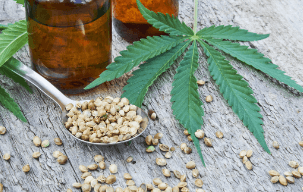
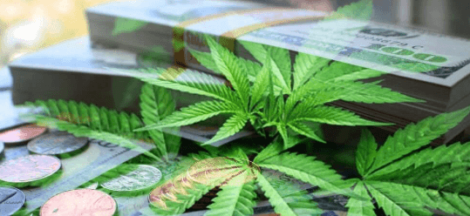
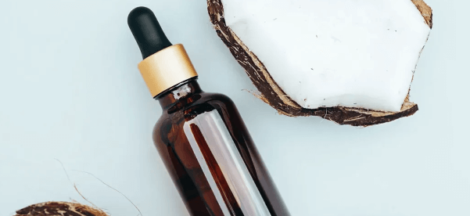
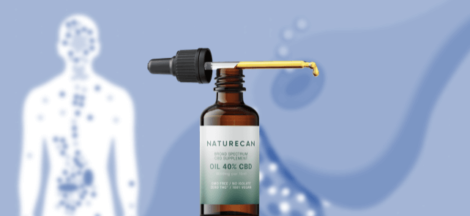
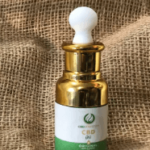 From Gummies to Tinctures: Exploring Different Forms of CBD Oil and Where to Buy cbd oil
From Gummies to Tinctures: Exploring Different Forms of CBD Oil and Where to Buy cbd oil